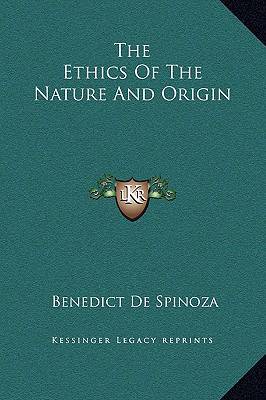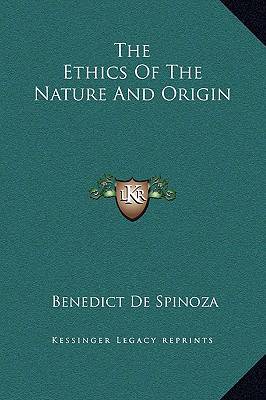
- Afhalen na 1 uur in een winkel met voorraad
- Gratis thuislevering in België vanaf € 30
- Ruim aanbod met 7 miljoen producten
- Afhalen na 1 uur in een winkel met voorraad
- Gratis thuislevering in België vanaf € 30
- Ruim aanbod met 7 miljoen producten
Zoeken
Omschrijving
The Ethics of the Nature and Origin is a philosophical treatise written by Benedict de Spinoza, a Dutch philosopher of the 17th century. The book is an exploration of Spinoza's ethical philosophy, which is grounded in his metaphysical beliefs about the nature of reality.Spinoza argues that everything in the universe, including human beings, is part of a single, unified substance called God or Nature. He believes that this substance is infinite, eternal, and self-sufficient, and that it operates according to a set of immutable laws.In this book, Spinoza sets out to explain his ethical theory, which is based on the idea that human beings can achieve happiness and fulfillment by living in accordance with the laws of Nature. He argues that the ultimate goal of human life is to attain a state of intellectual and emotional equilibrium, which he calls ""blessedness.""To achieve blessedness, Spinoza believes that we must cultivate reason, self-control, and a sense of detachment from our desires and passions. He also emphasizes the importance of social and political institutions that promote justice, equality, and freedom.Throughout the book, Spinoza engages with a range of philosophical and theological ideas, including those of Descartes, Hobbes, and traditional religious thinkers. He presents a rigorous and systematic argument for his ethical theory, drawing on logic, metaphysics, and psychology.Overall, The Ethics of the Nature and Origin is a seminal work of early modern philosophy that continues to influence contemporary debates in ethics, metaphysics, and political theory.Modes of thinking, such as love, desire, or any other of the passions, do not take place, unless there be in the same individual an idea of the thing loved, desired, But the idea can exist without the presence of any other mode of thinking.This scarce antiquarian book is a facsimile reprint of the old original and may contain some imperfections such as library marks and notations. Because we believe this work is culturally important, we have made it available as part of our commitment for protecting, preserving, and promoting the world's literature in affordable, high quality, modern editions, that are true to their original work.
Specificaties
Betrokkenen
- Auteur(s):
- Uitgeverij:
Inhoud
- Aantal bladzijden:
- 44
- Taal:
- Engels
Eigenschappen
- Productcode (EAN):
- 9781169199613
- Verschijningsdatum:
- 10/09/2010
- Uitvoering:
- Hardcover
- Formaat:
- Genaaid
- Afmetingen:
- 178 mm x 254 mm
- Gewicht:
- 299 g

Alleen bij Standaard Boekhandel
+ 92 punten op je klantenkaart van Standaard Boekhandel
Beoordelingen
We publiceren alleen reviews die voldoen aan de voorwaarden voor reviews. Bekijk onze voorwaarden voor reviews.











